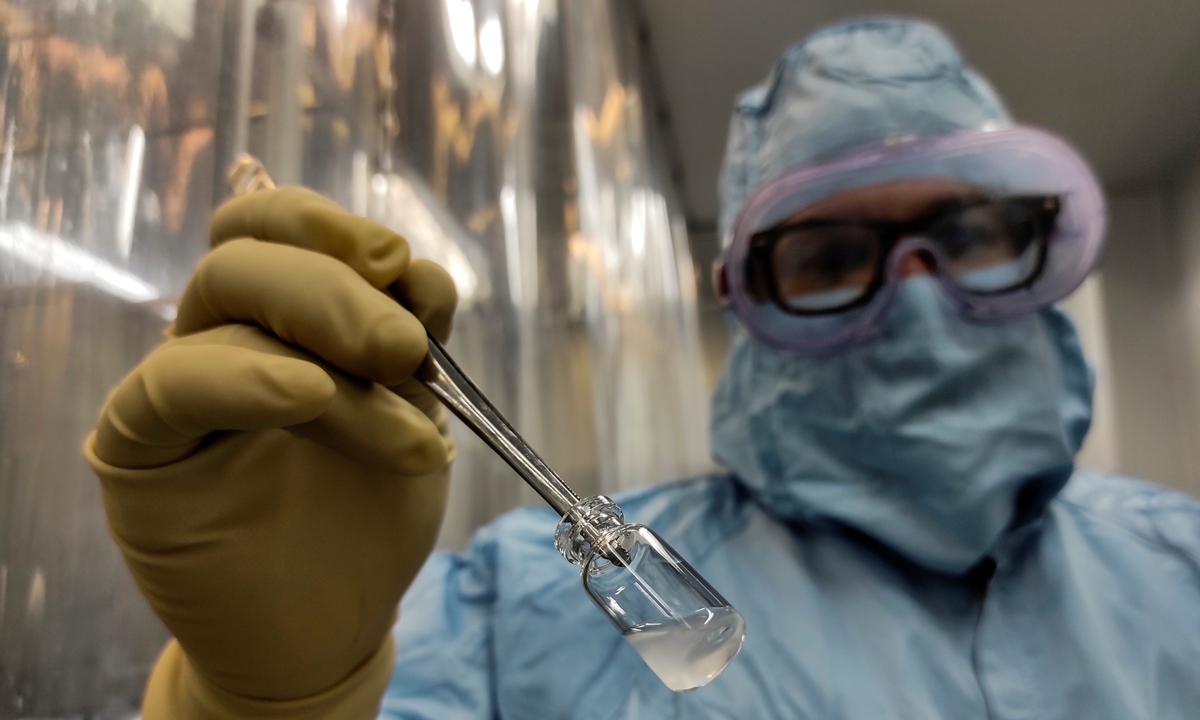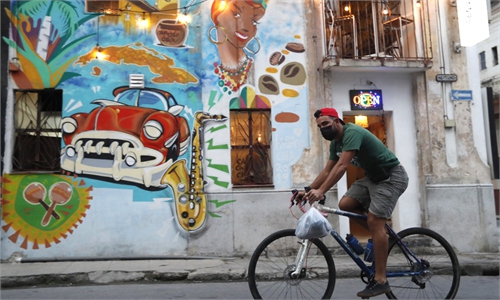
A Cuban technician shows a vaccine at the Vaccine Aseptic and Packaging Processing Plant of the Finlay Vaccine Institute in Havana. Cuba hopes to produce 100 million doses of its coronavirus vaccine in 2021 and immunize its entire population by the end of 2020, announced the director of the Finlay Institute in Havana. Photo: AFP
Cuba's homegrown vaccine candidates have made headlines worldwide. Less well-known is its production of medical gear such as ventilators and CT scanners for the treatment of COVID-19 patients in a bid to achieve "technological sovereignty" during the pandemic.During a tour of production facilities in Havana on Wednesday, officials touted the medical gear that had enabled them to save money and keep the mortality rate from COVID-19 low even as other countries had struggled to import such equipment.
"Our country is saving money and could save many millions of dollars thanks to all the results of sovereignty we have achieved," said Eduardo Martínez, head of state-run biopharmaceutical corporation BioCubaFarma.
The island nation has sought to develop such manufacturing in part in response to the decades-old US trade embargo, tightened by former US president Donald Trump, which hampers the import of medical equipment.
Daily coronavirus cases hit a new record of 1,051 on the island of 11 million inhabitants on Wednesday, bringing the total to more than 75,000. Deaths remain low at 424, one of the lowest rates per capita worldwide.
Cuba said late last year it had spent $100 million on confronting the pandemic so far, a strain on the economy that had already been suffering shortages of even basic goods such as medicine and food.
The country is on the brink of a possible major biopharmaceutical achievement, namely the development of a homegrown vaccine. Its most advanced candidate, currently in phase three trials, is called Sovereignty 2.
"The results we have had until now predict very satisfactory results and therefore we maintain that before year-end, our population will be immunized with the vaccines we are developing," said Martinez.


